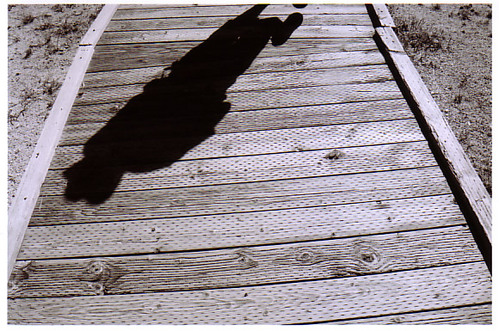
Suit's weekly announcement said that since many guidance counselor's have never actually taught they were going to shadow a student on their caseload this week. Teachers shouldn't think they are being observed. (I am sure some will love reporting everything they see.) The purpose is just to let the counselor know what a kid's school day is like.
Doesn't this say something about the lack of preparation of today's counselors? Years ago, a counselor had to teach for at least three years. That way, they knew the job they would be taking from all ends. They could understand the frustrations of the teacher and the student. Now, the "teenie bopper" counselors sit in an office equipped with a phone and a computer. When they need something, they see nothing wrong with calling a class and interrupting. Or, if a teacher speaks to them, the response is "put it in writing" which is hard to do when you are walking from room to room with three bags of books and there is no place stop and write.
I don't see what the counselor's will learn by shadowing the kids. The halls are crowded. Classrooms are dirty and overcrowded. The kids are so diverse in some of the classrooms that learning is difficult. They already know that. And now the counselors have been pulled away from their desks for a full day. They have huge caseloads and an inordinate amount of work. This time could be better spent. But, the idea of a counselor shadowing a student sounds good. Quality review is coming. Maybe Suit thinks this is something that will raise his score.
Doesn't this say something about the lack of preparation of today's counselors? Years ago, a counselor had to teach for at least three years. That way, they knew the job they would be taking from all ends. They could understand the frustrations of the teacher and the student. Now, the "teenie bopper" counselors sit in an office equipped with a phone and a computer. When they need something, they see nothing wrong with calling a class and interrupting. Or, if a teacher speaks to them, the response is "put it in writing" which is hard to do when you are walking from room to room with three bags of books and there is no place stop and write.
I don't see what the counselor's will learn by shadowing the kids. The halls are crowded. Classrooms are dirty and overcrowded. The kids are so diverse in some of the classrooms that learning is difficult. They already know that. And now the counselors have been pulled away from their desks for a full day. They have huge caseloads and an inordinate amount of work. This time could be better spent. But, the idea of a counselor shadowing a student sounds good. Quality review is coming. Maybe Suit thinks this is something that will raise his score.

6 comments:
Last year I had occasion to meet with two young 'uns. They were the pedagogical equivalent of two deer in the headlights. I think they're scared of old battle axes such as myself. I'm sure I reminded them of their mothers. What I question is the removal of the prerequisite teaching requirement. That just makes them very ignorant of everyday (not when they're observing) goings-on in real life classrooms, but also desensitizes them to the kids and the gamut of backgrounds and personalities we deal with in our classrooms minute by minute, not case by case. In the Kleinbergian vision, it's a waste to just spend money on classrooms and schools instead of billions of dollars wasted in consultants and superdatacomputers. I see a precipitous drop not only in my quality of life at work, but even more so with the kids. Of course, the needier the kid, the less available services are. Those, in the Kleinbergian vision, are just not worth $80 million or whatever superdatacomputer Aris costs. True "quality review" would not be this contrived construct designed to target certain schools, but a step towards improving, not diminishing, educational quality of life in PUBLIC schools. A truly good counselor needs more life and educational experiences to be as effective as they can be. It's all part of the diminishing quality of educational life here in the Kleinbergian fiefdom.
I know that a part of the QR is for someone ( in my school it was the Resource Rm. teachers) to present a case study of two students with a similar educational profile. One of which is progressing and the other is not. The case study attempts to figure out why this is so. Perhaps the counselors are in on this little investigation. Who knows? I am always second quessing why the suits want half the things they require of us.
I really don't get this. They need to understand teachers better, and so they shadow a student? Presumably they've all been students. Why aren't they shadowing a teacher?
Why haven't they taught first??? That is what I would like to know.
"The kids are so diverse in some of the classrooms that learning is difficult."
Could you please translate the above-quoted code into English?
Lsquared said...
I really don't get this.... Why aren't they shadowing a teacher?
12:27 PM, November 06, 2007
They are.
Miriam Webster definition of diverse for the non English readers:
Main Entry: di·verse
Function: adjective
Pronunciation: dī-'v&rs, d&-', 'dī-"
Etymology: Middle English divers, diverse, from Old French & Latin; Old French divers, from Latin diversus, from past participle of divertere
1 : differing from one another : UNLIKE
2 : composed of distinct or unlike elements or qualities
synonym see DIFFERENT
The kids have many different levels! Their abilities are different.
The guidance counselors are shadowing kids, not teachers.
Post a Comment